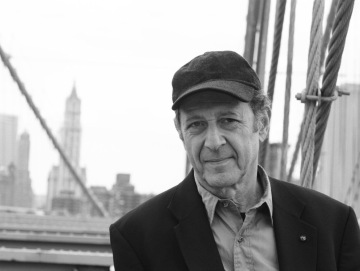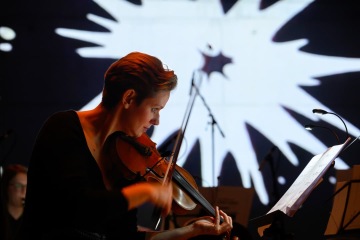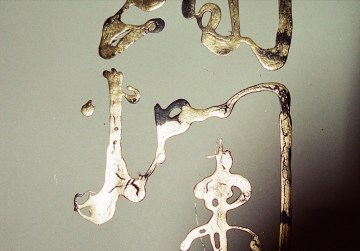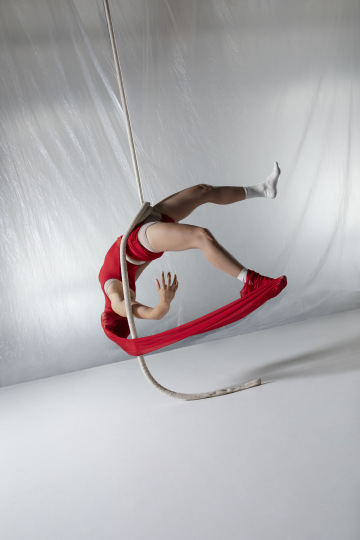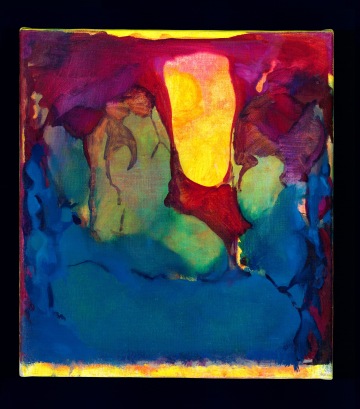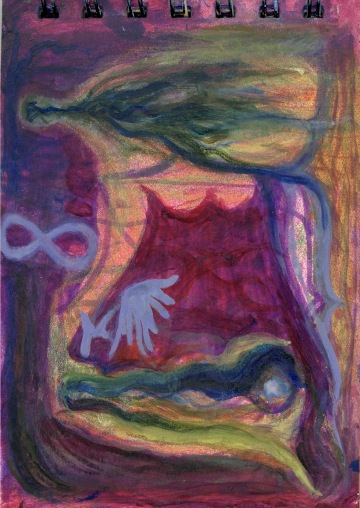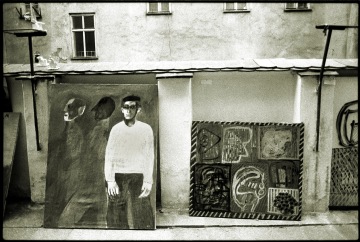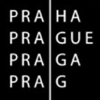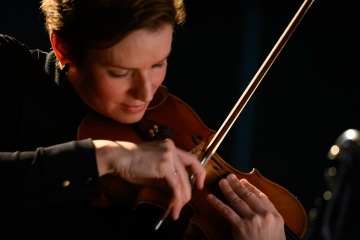
Let’s get straight to it, before we divert you
How much is the ticket? CZK 250 | CZK 200 students, seniors
What about the members of the DOX Club? 30% discount for members of the Friend, Friend + 1 and Family
More information about the festival programme, its guests and the possibility of buying tickets can be found on the FALL festival website.
Multifunctional hall DOX+
Poupětova 3, Praha 7
Show on the map
This year’s FALL festival and the exhibition KAFKAesque will conclude with soloists from the BERG Orchestra performing Steve Reich’s Different Trains and Gideon Lewensohn’s Odradek (selection).
In his iconic composition Different Trains, American minimalist Steve Reich connects histories big and small. As a child, he and his nanny regularly travelled by train between New York and Los Angeles in the years 1939 to 1942. He contrasts these romantic and exciting trips with the very different trains that he, as a Jew, would have been travelling on in Europe at that time. We hear recordings of Reich’s nanny Virginia, the memories of his peers who survived the Holocaust, and the sounds of trains from the 1930s and 1940s.
Commissioned by the Friedman Foundation in Los Angeles, Gideon Lewensohn’s string quartet Odradek borrows its title from a character in Kafka’s short story “The Cares of a Family Man”. Odradek is a mysterious being who lives in the narrator’s house. When you ask Odradek a question, he answers in riddles or sometimes not at all. It’s difficult to pin down anything about him. And the same is true of the music. It’s best to listen intently.
The concert will symbolically close the exhibition KAFKAesque as well as the entire FALL festival.
Programme:
Steve Reich: Different Trains
Gideon Lewensohn: Odradek (selection)
Soloists of the BERG Orchestra
Roman Hranička – 1st violin
Anna Romanovská Fliegerová – 2nd violin
Martin Stupka – viola
Balázs Adorján – cello
Steve Reich (1936) ranks among the most important American composers, and his music and experiments have influenced the world music scene. In the 1960s, he was instrumental in the creation and development of American minimalism. His musical language is characterised by an unrelenting rhythm combined with a specific sonic tonality, and he also enjoys working with recordings of human speech.
Israeli composer and conductor Gideon Lewensohn (1954) lives in Jerusalem, where he is a professor at Bar Ilan University. He studied in both Israel and the United States. His work consists mainly of chamber music, but he has also created orchestral and electroacoustic compositions as well as incidental music.
